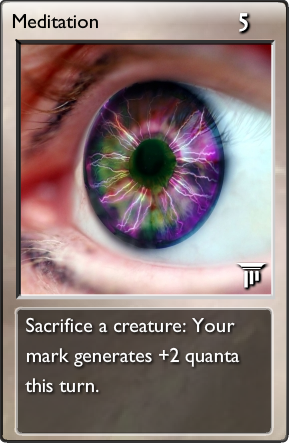1
Religion / Re: Confirmation bias
« on: August 02, 2010, 01:32:30 am »
This is really a problem with humans in general, but can you blame people?
As Dr. Gregory House once said when asked why he always assumed he was right, "I don't, I just find it hard to operate on the opposite assumption."
We all have to operate to our best understanding. Just because I chose a different worldview that makes sense to me than you did doesn't make me wrong. I might be wrong, but so might you.
Another problem is that everyone assumes that others are "assuming you're right," even if said others believe they're following the most recent evidence provided This is because everyone thinks they're right and that they have the most up-to-date evidence. We don't really have a choice in believing we're right. Whether or not we seek out truth and whether or not we're willing to change based on said proof varies. Everyone assumes they're right until they're proven wrong. At this point they may or may not accept the "proof." However, people who disagree with them will claim that they're suffering from confirmation bias. (btw, this is also called the halo effect.)
For example, I am a Christian. I believe in God because I'm operating with the most up-to-date evidence (personal experience). However, an atheist could come and "disprove" my personal experiences, and I would still choose to reject them, since I believe my evidence is more up-to-date than theirs. Said atheist might say that I'm suffering from confirmation bias, while I might say the same about her.
At the same time, I'm constantly open to new evidence. It's just hard to imagine evidence that would trump my own.
As Dr. Gregory House once said when asked why he always assumed he was right, "I don't, I just find it hard to operate on the opposite assumption."
We all have to operate to our best understanding. Just because I chose a different worldview that makes sense to me than you did doesn't make me wrong. I might be wrong, but so might you.
Another problem is that everyone assumes that others are "assuming you're right," even if said others believe they're following the most recent evidence provided This is because everyone thinks they're right and that they have the most up-to-date evidence. We don't really have a choice in believing we're right. Whether or not we seek out truth and whether or not we're willing to change based on said proof varies. Everyone assumes they're right until they're proven wrong. At this point they may or may not accept the "proof." However, people who disagree with them will claim that they're suffering from confirmation bias. (btw, this is also called the halo effect.)
For example, I am a Christian. I believe in God because I'm operating with the most up-to-date evidence (personal experience). However, an atheist could come and "disprove" my personal experiences, and I would still choose to reject them, since I believe my evidence is more up-to-date than theirs. Said atheist might say that I'm suffering from confirmation bias, while I might say the same about her.
At the same time, I'm constantly open to new evidence. It's just hard to imagine evidence that would trump my own.





 Guest Posts
Guest Posts

